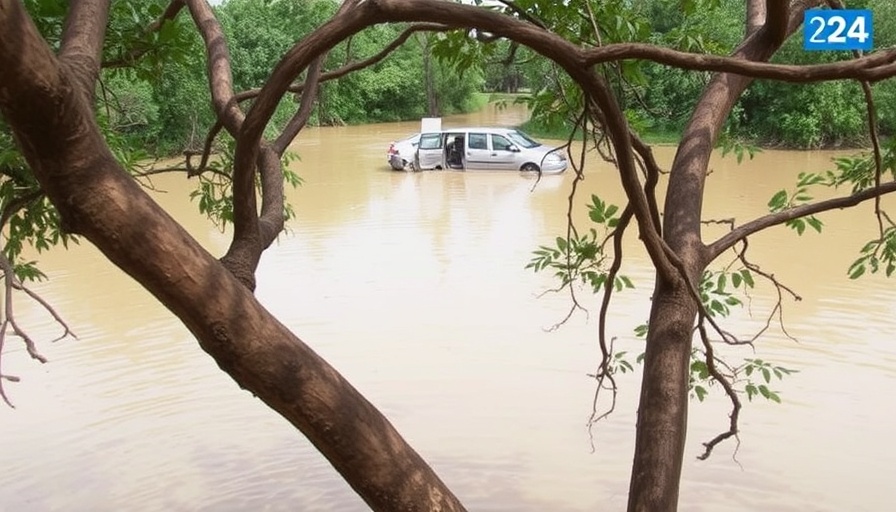
A Tale of Survival Amid Disaster
In the aftermath of the devastating floods that swept through Mthatha, South Africa, the harrowing story of a woman's extraordinary survival has captured national attention. As the torrential rains caused rivers to overflow, trees swayed perilously, and chaos ensued, this woman's tale emerged from the wreckage. With raw emotion and gripping detail, her experience underscores not only the immediate dangers of natural disasters but also the deeper societal issues that they reveal.
Facing Nature's Fury: A Personal Account
Samantha Nkosi, a resident of Mthatha, found herself clinging to a tree for over 11 hours. As floodwaters engulfed her neighborhood, she recounted the moment when her world turned chaotic. With rising waters threatening to consume her and her family, she had to make a split-second decision to escape to safety. Hoping to see her loved ones again, her grip tightened around the rough bark of the tree, marking a pivotal point in her struggle against nature's unforgiving power.
Broader Implications: Climate Change and Community Resilience
This personal narrative echoes a concerning trend prevalent in many South African communities: the impact of climate change. As weather patterns become increasingly unpredictable, resulting in extreme weather events, the vulnerabilities within underrepresented communities become starkly evident. Flooding incidents not only threaten lives but also expose poor infrastructure and inadequate disaster preparedness strategies. The government’s response and community resilience are vital topics, as South Africa grapples with the consequences of climate change.
The Role of Governance in Disaster Preparedness
In the wake of the Mthatha floods, questions about governance and accountability arise. Why do communities like Mthatha remain vulnerable to such disasters? Critics argue that inadequate government policies, lack of effective communication regarding natural disasters, and insufficient funding for infrastructure projects significantly hinder recovery efforts. Issues surrounding state capture and corruption investigations within government ranks further undermine trust between citizens and policymakers.
Echoes of Resilience: Mthatha Community Spirit
While the floodwaters recede, the resilience of the Mthatha community shines through. Neighbors banding together to support those who lost everything reveals a shared sentiment of hope amid despair. Whether through shared meals or community clean-up initiatives, acts of kindness emphasize the unyielding spirit of a community striving to rebuild, even as they face systemic challenges and economic recovery hurdles.
Public Health Concerns and Rehabilitation Challenges
As the physical landscape of Mthatha changes due to flood damage, its health landscape faces its own peril. The aftermath of a flooding crisis often includes outbreaks of waterborne diseases, putting immense pressure on an already beleaguered public healthcare system. Addressing rehabilitation and public health campaigns is vital as communities strive to recover and rebuild their lives in the face of looming threats.
From Personal to Political: A Call for Awareness
This narrative is not merely one of survival; it is a clarion call for concerted efforts towards sustainable development and effective governance in South Africa. The story of Samantha Nkosi transcends personal tragedy, speaking to the need for transparent, accountable leadership that prioritizes disaster preparedness and environmental sustainability. Professionals, policymakers, and citizens alike must come together to address the rampant issues of climate resilience and infrastructure development to ensure that no one spends 11 hours clinging to a tree in vain.
As the nation processes this event and the underlying issues it highlights, it is imperative for everyone to engage in meaningful dialogues regarding climate change, urban planning, and effective governance. These conversations are not just crucial for Mthatha — they are vital for every community in South Africa grappling with similar vulnerabilities. Let Samantha Nkosi’s story provoke thought and action, as we pave the way for a more resilient future, together.
 Add Row
Add Row  Add
Add 




Write A Comment